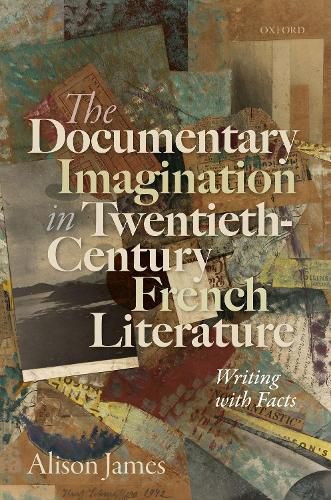Readings Newsletter
Become a Readings Member to make your shopping experience even easier.
Sign in or sign up for free!
You’re not far away from qualifying for FREE standard shipping within Australia
You’ve qualified for FREE standard shipping within Australia
The cart is loading…






The Documentary Imagination in Twentieth-Century French Literature identifies a documentary impulse in French literature that emerges at the end of the nineteenth century and culminates in a proliferation of factual writings in the twenty-first. Focusing on the period bookended by these two moments, it highlights the enduring concern with factual reference in texts that engage either with current events or the historical archive. Specifically, it considers a set of ideas and practices centered on the conceptualization and use of documents. In doing so, it contests the widespread narrative that twentieth-century French literature abandons the realist enterprise, and argues that writers instead renegotiate the realist legacy outside, or at the margins of, the fictional space of the novel.
Analyzing works by authors including Gide, Breton, Aragon, Yourcenar, Duras, and Modiano, the book defines a specific documentary mode of literary representation that records, assembles, and investigates material traces of reality. The document is a textual, visual, or material piece of evidence repurposed through its visual insertion, textual transcription, or description within a literary work. It is a fact, but it also becomes a figure, standing for literature’s confrontation with the real. The documentary imagination involves a fantasy of direct access to a reality that speaks for itself. At the same time, it gives rise to concrete textual practices that open up new directions for literature, by interrogating the construction and interpretation of facts.
$9.00 standard shipping within Australia
FREE standard shipping within Australia for orders over $100.00
Express & International shipping calculated at checkout
The Documentary Imagination in Twentieth-Century French Literature identifies a documentary impulse in French literature that emerges at the end of the nineteenth century and culminates in a proliferation of factual writings in the twenty-first. Focusing on the period bookended by these two moments, it highlights the enduring concern with factual reference in texts that engage either with current events or the historical archive. Specifically, it considers a set of ideas and practices centered on the conceptualization and use of documents. In doing so, it contests the widespread narrative that twentieth-century French literature abandons the realist enterprise, and argues that writers instead renegotiate the realist legacy outside, or at the margins of, the fictional space of the novel.
Analyzing works by authors including Gide, Breton, Aragon, Yourcenar, Duras, and Modiano, the book defines a specific documentary mode of literary representation that records, assembles, and investigates material traces of reality. The document is a textual, visual, or material piece of evidence repurposed through its visual insertion, textual transcription, or description within a literary work. It is a fact, but it also becomes a figure, standing for literature’s confrontation with the real. The documentary imagination involves a fantasy of direct access to a reality that speaks for itself. At the same time, it gives rise to concrete textual practices that open up new directions for literature, by interrogating the construction and interpretation of facts.